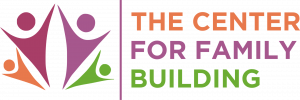Can you manage your stressors like traumas?
The anxieties you have likely experienced over this past year may have felt like stressors, but it may be more helpful to think of them as traumas. Family building during a pandemic can wallop a double dose of upset and feeling out of control.
Perhaps your experiences don’t feel like “real” traumas because they may not be devastating, or life threatening, but we can think of them as traumas just the same. Why? Because these traumas (we can call them small traumas) have similar effects as large traumas and you may find healing in treating them as such.
When you think about traumatic events, your experiences may seem very different than everyday stressors. But, if you look at some of the common PTSD symptoms that develop due to trauma, you may discover that stressors and traumas can affect you in similar ways.
Here are a few examples:
- You persistently re-experience the event or situation
- You avoid any stimuli related to the event or situation
- You have negative thoughts or feelings that began or worsened after the event or situation
- You experience hyper-arousal or reactivity related to the situation or event
- You have nightmares
- You have intrusive thoughts
- You experience flashbacks
- The experience or event can lead you to feel badly about yourself and your relationships
Stage 1: Establishment of Safety
Judith Herman believes that a trauma can destroy your assumptions about safety.
You may feel like the world is different from the world you once trusted. You may question your place in the world and feelings about yourself. Shame and guilt may ensue as you feel more negatively about yourself.
Supportive counseling can help you regain a sense of safety.
Stage 2: Remembrance & Mourning
At this stage in therapy, you process the stressors and mourn the loss over what did not happen or what should have been, but wasn’t. During this time your body is beginning to adapt to the painful experiences and, therefore, the pain begins to dissipate. As this happens, you become stronger and rebuild your sense of safety in the world.
In this stage you also begin to let go of self-blame. Learning how to manage your inner critic can help you regain your self-esteem and your strength.
Stage 3: Reconnection
Stage three focuses on self-regard, self-care and reconnecting in the world in a more helpful way.
Has treatment taken the stuffing out of you? Is the combination of the pandemic and family building just too much? Are you feeling badly about yourself and feeling like a victim of your circumstance? If you are, you are not alone. Fertility treatment can be tough, and even tougher now when so many more experiences and events are out of our control. Appreciating this, and beginning to take care of your inner wounds, as you would care for any external wound, may be what you need to feel better so you can feel stronger for your journey, the people around you and your future family.
Our goal is to make your journey easier.
Please feel free to reach out to us anytime.
Warmly,
Lisa and the CFB team
